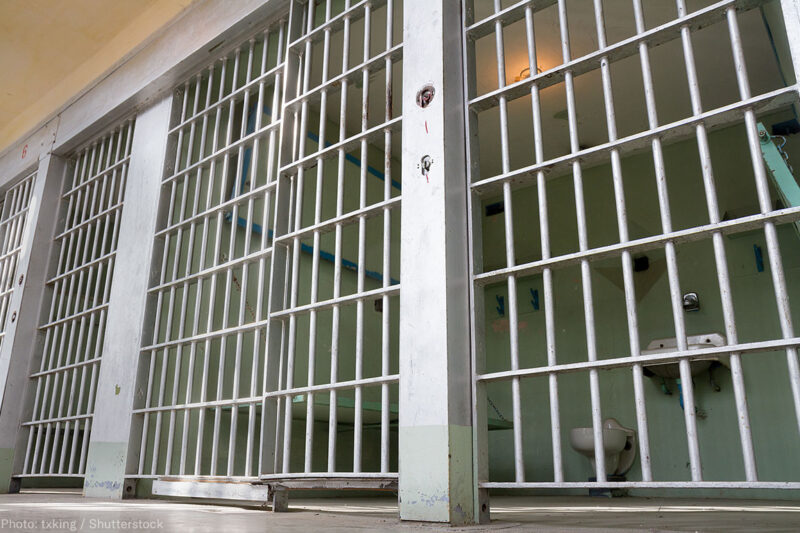Why Mississippi Officials Needed to Answer for Inhumane and Dangerous Prison Conditions


This spring, we took the Mississippi Department of Corrections to court for the grave abuses and inhumane conditions they allowed at the East Mississippi Correctional Facility, a private prison in Meridian. No court decision will undo the harm done to the prisoners. But the court can require an end to the barbarity at the facility that we detailed in our fight for the constitutional rights of prisoners there.
Over the course of a five-week trial, lawyers from the ACLU, Southern Poverty Law Center, Covington & Burling LLP, and the Law Offices of Elizabeth Alexander presented evidence against the Mississippi Department of Corrections in support of seven separate constitutional violations: for failure to protect prisoners from harm; for excessive use of force by staff on prisoners; for unsafe and unsanitary environmental conditions ; for substandard nutrition; for use of solitary confinement; for inadequate medical care; and for substandard mental health care.
Witness testimony was damning.
From January through June 2017, the correctional facility averaged 16.5 prisoner-on-prisoner or prisoner-on-staff assaults per month. For that same period, facility staff recovered an average of 31.17 weapons per month.
“This is not a normal prison,” testified Eldon Vail, the former secretary of the Washington Department of Corrections. “It’s a facility that has a persistent problem with violence,” Vail said, “well beyond what I’ve seen in other prisons.” He would know. Vail has over 35 years of experience in corrections, including working in prisons and running statewide system
At trial, prisoner witnesses testified that the prison fails to take even basic security measures, such as ensuring that the locks on cell doors actually work. The ease with which the locks can be tampered with creates an environment rife with violence. “It’s easy to manipulate them,” testified John Barrett, a named plaintiff in the case. “I mean all you need is a milk carton . . . or a piece of paper.” When asked why prisons across the country don’t have this problem, one of the state’s expert witnesses testified, “Their staff takes measures to correct the problem.”
In addition to presenting evidence on the dark and dirty living conditions at the facility, prisoner and expert witnesses described smoky and dangerous conditions caused by constant fires. For instance, over a two-week period from February 25 through March 12, 2017, prisoners in the solitary confinement unit set 66 separate fires — more than four fires per day. Most of the time, prisoners set these fires to get staff attention for their basic human needs, such as emergency medical care and mental health care. Without setting fires, the prisoners would be ignored.
Prison administrators also didn’t ensure adequate staffing to run its facility. This extended to necessary medical and mental health care. At a facility where 96 percent of prisoners take medication, EMCF struggles to deliver necessary medications.
The story of prisoner Merlin Hill is emblematic of the medical ineptitude at the prison. Racked with tremors due to a life-threatening seizure disorder, Hill testified that every month the facility’s medical staff allows his medications to lapse. Even worse, every couple weeks, they allow his anti-psychotic medication to run out — forcing him to deal with “murderous thoughts, suicidal thoughts, pains in my head.”
Mr. Hill’s story is not an isolated event.
Despite the fact that 1,099 out of about 1,200 patients at the prison require mental health care, EMCF also does not provide essential treatment services, like group therapy and individual counseling to prisoners. According to a MDOC audit, only 10 percent of the patients reviewed had evidence of group therapy in their medical records. The medical records of prisoners that were sampled in that same review reflected that only 25 percent of the prisoners in the unit for patients with the most acute mental illnesses showed evidence of group therapy. None of the sampled records for that unit showed evidence of individual therapy every 30 days.
These problems persist at the facility because the Department of Corrections has abdicated its responsibility to care for prisoners by putting them in the hands of private contractors. Management & Training Corporation runs the prison, while Centurion of Mississippi provides health care and mental health care to facility prisoners. But Mississippi officials fail to hold these contractors responsible for the care of Mississippi most vulnerable prisoners — those with serious mental illnesses. At trial, Dr. Gloria Perry, chief medical officer for the Department of Corrections, whose job is to oversee the medical and mental health care provided by private contractors in Mississippi prisons, admitted that she had never even visited the facility.
The lawsuit against the East Mississippi Correctional Facility highlights a major problem with private prisons. The profit motive encourages contractors to sacrifice prisoners’ health and rights, especially in areas of staffing and treatment, in order to cut costs and squeeze a higher profit margin out of the contract. And while this may violate the terms of their contracts with state and federal officials, that is meaningless if those officials fail to enforce those agreements.
The Mississippi Department of Corrections has a responsibility to provide safe and humane conditions for prisoners in their charge. Mississippi officials cannot abdicate responsibility by turning facilities over to for-profit companies and then bury their heads in the sand. When officials turn their backs on prisoners and detainees who are suffering, we will hold those officials accountable.
